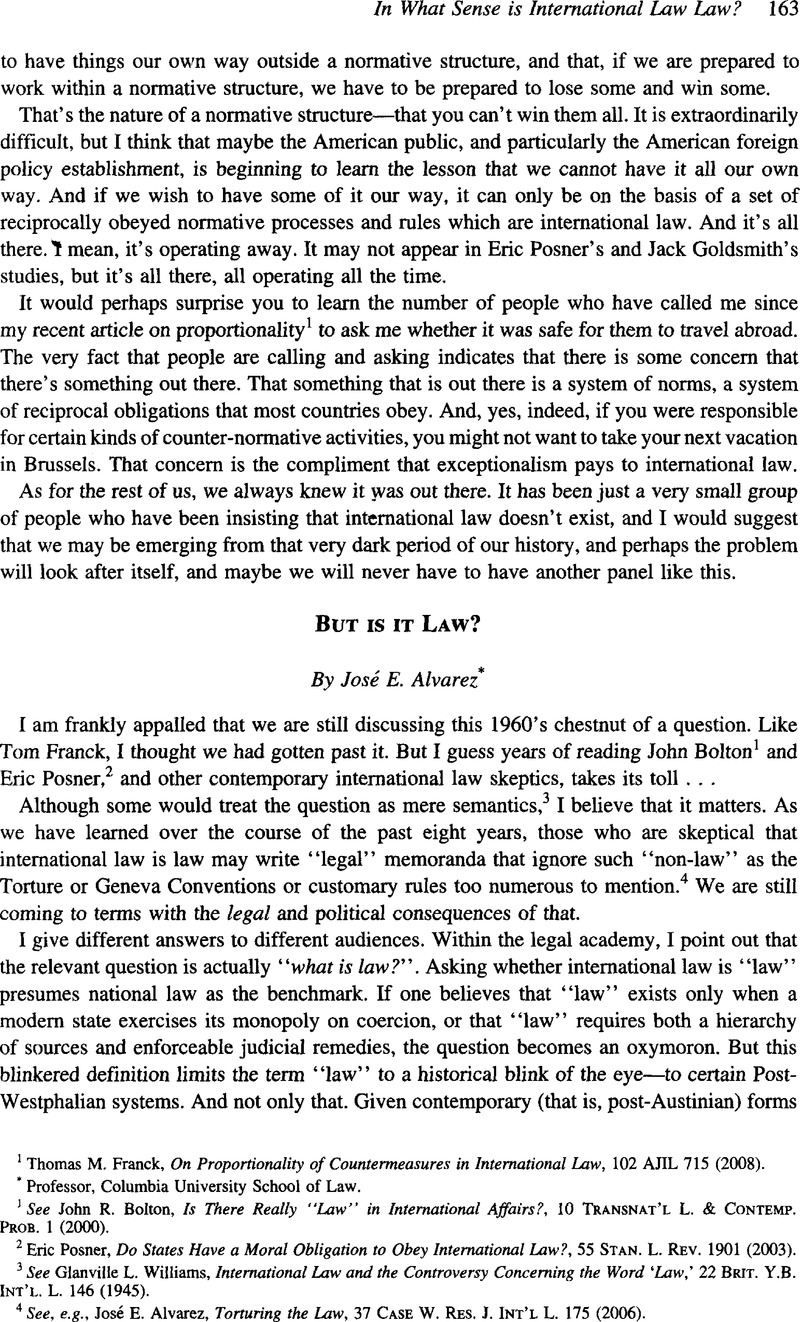No CrossRef data available.
Published online by Cambridge University Press: 28 February 2017

1 See Bolton, John R. Is there Really “Law” in International Affairs?, 10 Transnat’l L. & Contemp. Prob. 1 (2000)Google Scholar.
2 Posner, Eric, Do States Have a Moral Obligation to Obey International Law?, 55 Stan. L. Rev. 1901 (2003)Google Scholar.
3 See Williams, Glanville L. International Law and the Controversy Concerning the Word ‘Law,’ 22 Brit. Y. B. Int’l. L. 146 (1945)Google Scholar.
4 See, e.g., Alvarez, José E., Torturing the Law, 37 Case W. Res. J. Int’l L. 175 (2006)Google Scholar.
5 See Hart, H.L.A., The Concept of Law, 221-226 (1961)Google Scholar; D’Amato, Anthony A, The Neo-Positivist Concept of International Law, 59 AJIL 321 (1965)CrossRefGoogle Scholar.
6 For contemporary doubts concerning the viability of customary international law along some of these lines, see, e.g., Kelly, J. Patrick, The Twilight of Customary International Law, 40 Va. J. Int’l L. 449 (2000)Google Scholar.
7 But international law’s fate should not turn on the extent to which international courts exist and operate. See generally, Alvarez, José E., The New Dispute Settlers: (Half) Truths and Consequences, 38 Tex. Int’l L. J. 1 (2003)Google Scholar.
8 Guzman, Andrew T. Explaining the Popularity of Bilateral Investment Treaties, in The Effect of Treaties on Foreign Direct Investment 73 (Sauvant, Karl P. & Sachs, Lisa E. eds., 2009)CrossRefGoogle Scholar.
9 See Sempra Energy International v. Argentina (ICSID Case No. ARB/02/16), Decision on the Argentine Republic’s Request for a Continued Stay of Enforcement of the Award, Mar. 5, 2009.